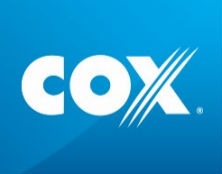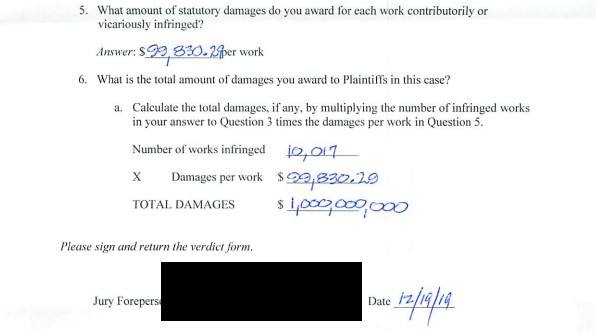 Last year Cox settled its piracy liability lawsuit with music rights company BMG.
Last year Cox settled its piracy liability lawsuit with music rights company BMG.
The ink on this agreement was barely dry when the ISP faced a similar and additional complaint. This time it was up against 53 music companies, including Capitol Records, Warner Bros, and Sony Music.
The rightsholders complained that Cox categorically failed to terminate repeat copyright infringers and that it substantially profited from this ongoing ‘piracy’ activity. All at the expense of the record labels and other rightsholders.
Early this month the case went to trial where the parties vigorously defended their positions. The music companies argued that Cox willingly turned a blind eye to pirates, while Cox countered that it’s not to blame for the alleged infringements of subscribers.
A few hours ago the jury reached its final conclusion at the Virginia federal court, clearly siding with the music companies.
Cox was found to be both contributorily and vicariously liable for the alleged pirating activity of its subscribers. This applies to all the 10,017 copyrighted works the music companies claim were infringed.
In addition, the jury concluded that Cox’s action was “willful.” This allows for a maximum damages amount of $150,000 per work but the jury agreed on $99,830, which puts the total damages amount at $1 billion.

The RIAA, which helped many of its members with this case, is pleased with the outcome. The music industry group hopes that it will motivate other ISPs to change their anti-piracy policies.
“The jury’s verdict sends a clear message – Cox and other ISPs that fail to meet their legal obligations to address piracy on their networks will be held accountable,” RIAA’s Kenneth Doroshow notes.
“The jury recognized these companies’ legal obligation to take meaningful steps to protect music online and made a strong statement about the value of a healthy music ecosystem for everyone – ranging from creators to fans to the available outlets for legitimate music consumption.”
Cox Communications is disappointed with the verdict. The company calls the damages amount “unjust and excessive” and is set to appeal.
“We plan to appeal the case and vigorously defend ourselves. We provide customers with a powerful tool that connects to a world full of content and information,” Cox said in a statement.
“Unfortunately, some customers have chosen to use that connection for wrongful activity. We don’t condone it, we educate on it and we do our best to help curb it, but we shouldn’t be held responsible for the bad actions of others,” Cox adds.
This means that the legal battle is likely to continue. And as noted by Variety, the present verdict isn’t final yet until all post-trial motions have been dealt with.
The $1 billion in damages the jury awarded is substantially higher than that of the earlier case against BMG. At the time, the jury awarded $25 million, based on 1,397 copyrighted works. This figure was later reduced in a settlement.





